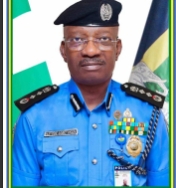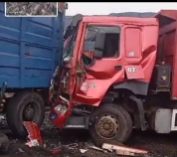
National Security: Special Intervention Squad (SIS), impact, prospects in IGP egbetokun’s renewed policing vision
CITIZENS COMPASS — The trajectory of a nation’s development in all areas is linked and often directly proportional to the strength of its security architecture. Many scholars have viewed security not only as the absence of war but as the overall well-being of a nation’s citizenry. This broad perspective aligns with the principles and concept of the “New Security Agenda.” The components of this agenda include human security, environmental security, economic security, and political security — each interconnected and collectively contributing to a country’s overall resilience and stability.
Globally, security is crucial to development. Nigeria has played a prominent role in global security matters, particularly in Africa, owing to its vast geographical size, large population, and abundant natural resources. Over time, however, Nigeria has faced significant security challenges, arising from various factors related to its human, material, and natural endowments. These challenges have kept the country’s institutions and departments on alert, constantly working to provide timely solutions.
McNamara (1968) once said,
“Security is not military hardware, though it may include it; security is not a military force, though it may involve it; security is not a traditional military activity, though it may encompass it. Security is development, and without development, there can be no security.”
The role and mandate of a functional police institution, like the Nigeria Police Force (NPF), cannot be fully appreciated without the country experiencing rapid economic recovery, social integration, and overall development. The nexus between national development and a productive policing system is fundamental. This can be achieved through a police force that is professionally competent, service-driven, compliant with the rule of law, and people-friendly – principles enshrined in the IGP’s vision statement.
This analogy accentuates the need to assess, review, and align with the New Security Agenda, which led the Inspector-General of Police, IGP Olukayode Adeolu Egbetokun, upon assuming office as the 22nd indigenous IGP, to create a special squad to augment the existing security structure of the Force. This initiative is geared towards combatting crimes such as kidnapping, banditry, and other criminal activities plaguing various regions in Nigeria. The Special Intervention Squad (SIS), a core component of the IGP’s administration, was first launched in Jos, Plateau State, on 29th December 2023. This followed the IGP’s on-site assessment of the devastation caused by armed bandits who attacked Mangu, Bokkos, and Barkin Ladi Local Government Areas on Christmas Eve, 24th December 2024. The attack resulted in the loss of over 200 lives and significant property destruction. The SIS’s activities in Plateau State have led to the arrest of suspects directly involved in the attack, who have since confessed to their crimes. The IGP also ordered the deployment of the supervisory Assistant Inspector-General of Police in charge of Zone 4 Headquarters (comprising Nasarawa, Plateau and Benue States) to Plateau State to oversee the Squad’s operations and to ensure the maximum use of available assets and resources to make the state uninhabitable for criminal elements and restore normalcy.
To actualize his vision, the mathematical IGP in his wisdom, launched the Special Intervention Squad for the Federal Capital Territory (FCT) on 17th January 2024, under the supervision of the Deputy Inspector-General of Police in charge of Operations, DIG Ede Ayuba Ekpeji. The Squad commenced immediate operations in the FCT and its environs. The IGP emphasized the need to control the influx of armed criminals into the FCT, particularly in bordering communities connecting states like Niger, Kaduna, Nasarawa, Benue, and Kogi. These criminals leverage the proximity of the FCT to these states to perpetrate their activities. However, with the intervention of the Squad, these threats are being actively tackled.
The Intervention Team, commanded by CP Benneth Igweh, mni (as he then was), conducted operations in areas such as Kawu, Kuchikau, Bwari, Nigerian Law School, Veritas University, Claretian Missionary Seminary, Zuma I, Zuma II, and Iguh – known hotspots for terrorist and bandit activities. They also extended their operations to Tafa, Gauraka, and Garam in Niger State and boundary areas in Kaduna State.
On 18th January 2024, at about 0010HRS, the squad while carrying out a covert operation, intercepted a grey Toyota Hilux van with registration number RBC90DC Abuja, carrying four passengers, including the driver. Upon sighting the police, one of the kidnappers opened fire in an attempt to escape, but the squad’s superior firepower led to the rescue of one Segun Akinyemi, who had been kidnapped in Abuja and was being taken to Kano. One Chinaza Philip from Life Camp, Abuja, was arrested, and the squad recovered two G17 model pistols, one Beretta pistol, ten 9mm P.A.K rounds of ammunition, and five 9mm special rounds. Efforts are ongoing to arrest the fleeing members of the gang, who escaped in a white Mercedes Benz.
In collaboration with the Force Intelligence Department – Intelligence Response Team (FID-IRT), the FCT Command Anti-Violent Crimes Section, Anti-kidnapping Section, and neighbouring state commands, as well as the Nigerian Army, the SIS in a rigorous, well-calculated rescue operation successfully rescued victims of the 2nd January 2024 kidnapping in the Zuma 1 Area of Bwari Area Council. The victims were found in Kajuru Forest, Kaduna State, on 20th January 2024, at around 11:30 pm, and were reunited with their families.
Additionally, the SIS has rescued four other kidnap victims within the FCT. Suleiman Sabo was rescued in Sauka along Airport Road, with the arrest of his kidnapper, Muhammed Abel, who was found in possession of one MK1 rifle and ten rounds of live ammunition. Two victims, abducted from the residence of Barr. Cyprian Adikwu at Army Post Service Housing Estate, Phase 2 Extension, Hilltop Kurudu on 18th January, 2024, and one Gideon Nanjul reportedly abducted on 19th January, 2024, were rescued on 20th January 2024, following tireless efforts by police operatives, vigilante groups, and hunters arounf Kurudu and Azhata Village. They have also been reunited with their families.
On 20th January 2024, at about 2200hrs, the Divisional Police Officer (DPO) in charge of Tafa Division, Kaduna State, acting on credible intelligence, led a patrol team to Easy Way Hotel, where they arrested one Bello Muhammed, aged 28, from Zamfara State, in possession of a cash sum of N2,025,000 (Two Million, twenty-five Thousand Naira). Upon interrogation, he confessed to being a kidnapper, and a picture of him holding an AK-47 rifle in the bush was found on his phone.
To eliminate any ambiguity, it is important to highlight that the Special Intervention Squad has been instrumental in various operations nationwide, including the neutralization of eight (8) Eastern Security Network (ESN) terrorists in Owerri, Imo State, on 1st August 2024, and the rescue of twenty (20) kidnapped individuals on 14th September 2024, and neutralized two armed robbers while recovering two AK47 rifles in Mangu LGA, Plateau State. The squad has significantly contributed to reducing crime across the country and has been involved in several joint operations in various states.
The SIS has also played a pivotal role in ensuring election security in Edo State and in recovering arms and ammunition in the FCT, Niger, and Kaduna States, in collaboration with the Office of the National Security Adviser. These remarkable feats highlight the Squad’s effectiveness and the indispensable nature of its operations.
Nigeria’s embrace of the New Security Agenda is not just a choice as it is crucial for its stability, development, and the well-being of its citizens. The interconnected nature of security challenges demands an integrated, intelligence-driven approach, which the IGP is spearheading to reposition the NPF and restore its primacy in internal security. The fight against insecurity is a collective responsibility, and the establishment of the SIS marks a significant step toward achieving a safer, more prosperous Nigeria.
The journey towards a more secure Nigeria calls for sustained efforts, collaboration among security operatives, and solidarity in combating crime. As Nigeria navigates complex global realities, our new security agenda must reflect a commitment to adaptability, collaboration, and foresight. The path ahead is challenging, but with determination and a united effort, Nigeria will overcome these challenges and secure a safer and more prosperous future for its citizens and the global community.
Nigeria is embarking on a new security agenda that addresses these complex challenges, which require a drastic approach, such as the creation of the Special Intervention Squad (SIS) by the IGP. The primary duty of the SIS is to take the fight directly to the criminals, completely flushing them out of the FCT and its environs. Similar operations will be launched in other states across Nigeria. The fight against insecurity in Nigeria is our collective responsibility.
Olumuyiwa Adejobi, is a Public Relations Practitioner, Security Expert and member of the Society for Peace Studies and Practice.




